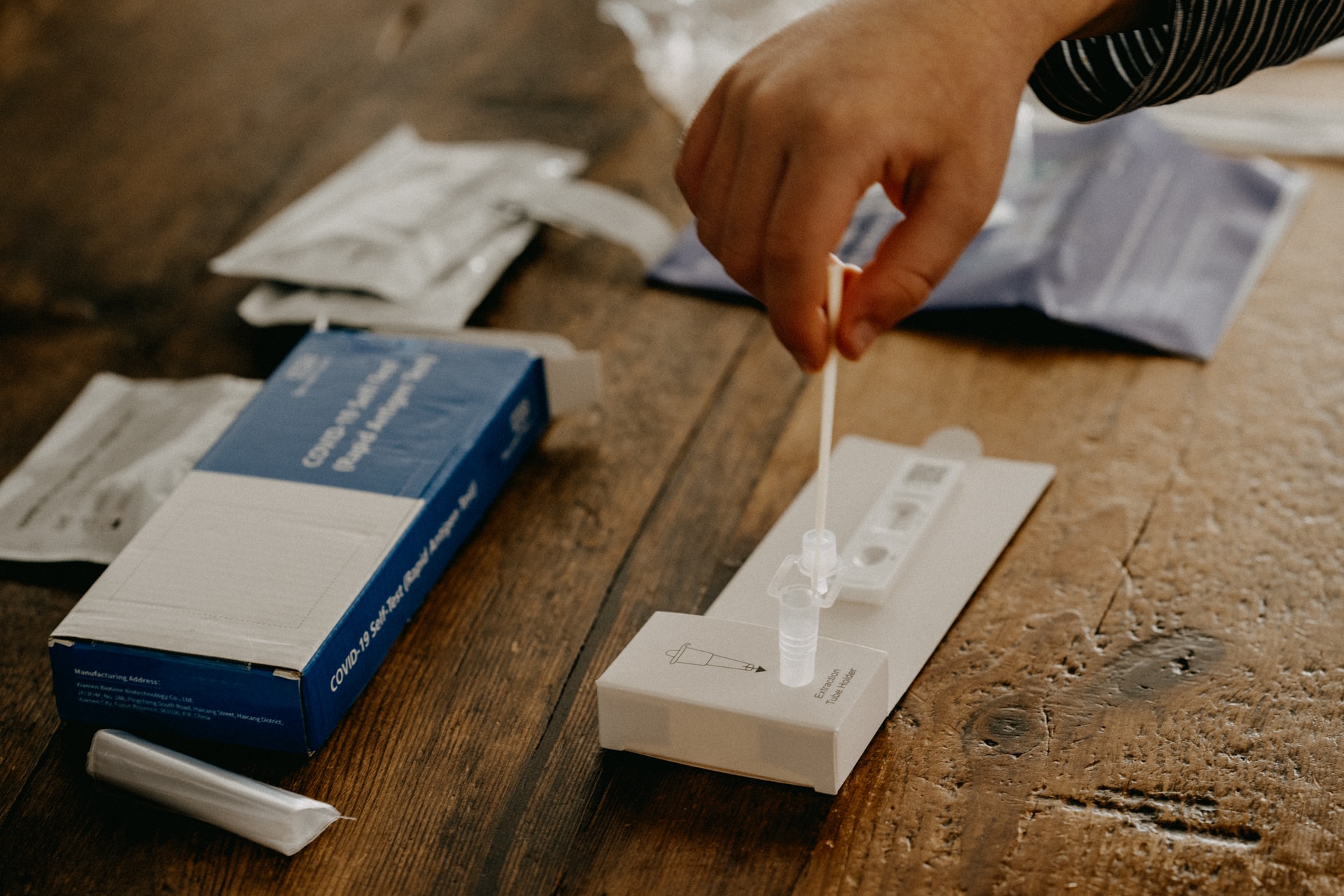Voluntary self-testing is not helping to enable more physical education. Over 400 million euros have been wasted on it. Delft research on crowd control is successful, though.
Self-tests? Students see little point in them. (Photo: Annie Spratt/Unsplash)
A variety of pilot projects involving tests and self-tests were carried out in recent months at secondary vocational education and higher education level. It had been hoped that more face-to-face teaching would be possible if students and teaching staff took regular tests.
That was not the case. In a letter to the House of Representatives, the minister writes that the coronavirus tests in the pilot projects “have done little or nothing to make it possible to organise more face-to-face teaching”.
Traffic flows
Research into crowd control at TU Delft did prove useful, the same letter states. Researchers from the Transport & Planning department (Civil Engineering and Geosciences) have monitored traffic flows on campus for months. The idea is that bottlenecks, places where people are too close to each other, for example because of traffic congestion, can be identified and dealt with earlier. In another experiment by CEG, visitors to the TU Delft Library were given an app on their phone or a band on their wrist that communicates with beacons in the building. The pilots in Delft ‘show that it is relatively easy to manage crowd control’ the Minister writes. ‘Consider, for example, opening teaching rooms earlier to reduce points of contact.’
Voluntary
However, not many people have been prepared to self-test. The country wide pilot projects show that only 25 to 30 percent of the students are taking part. One of the reasons for this is that the tests are ‘voluntary’: it makes little difference to the students whether or not they take part.
Universities cannot yet schedule any extra classes
And are those self-tests actually successful? Good instruction helps of course, but one of the caveats is that “the greater margin for error than with tests done by professionals still poses a risk”. So students and teachers have to continue maintaining a distance of 1.5 metres, despite the self-tests. Consequently, universities and universities of applied sciences cannot yet schedule any extra classes. This emerged at the beginning of April from the first pilot project to be completed, but the ministry was not prepared to accept it at that time. Let’s wait for more results, they said.
Free
The cabinet had already decided that there ought to be free self-testing in the higher education sector. Almost half a billion euros were to be spent on it, although it proved to be a little less expensive. The educational establishments and student associations were not very positive about it but did not oppose it. The House of Representatives paid no attention to it either.
Thanks to the vaccination campaign, the number of infections is now falling. The hope is that universities and universities of applied sciences will be able to schedule normal teaching again next academic year, without social distancing and without self-tests. Nevertheless, at an online presentation of the results yesterday Minister Van Engelshoven called the pilot projects “incredibly important”. Something has indeed been learned from them and she wants to keep a record of that information in case new outbreaks occur.
Sphere of experience
For instance, information about self-testing and coronavirus ought preferably to be given “from within the students’ sphere of experience”, for example via education coordinators, academic advisors or teachers. These people therefore need to have sufficient knowledge.
Tender
Earlier this year, the cabinet took a quick decision to distribute self-tests free of charge (at a cost of more than 400 million euros). The tender did not proceed lawfully, the Minister writes. The portal zelftestonderwijs.nl is therefore shutting down earlier than was intended, on 1 August, in the hope that the self-tests will no longer be necessary after that. If the infections do run too high, there may be an obligation for a negative coronation test for in mbo and higher education.
HOP, Bas Belleman / Delta, Tomas van Dijk
Do you have a question or comment about this article?
redactie@hogeronderwijspersbureau.nl


Comments are closed.